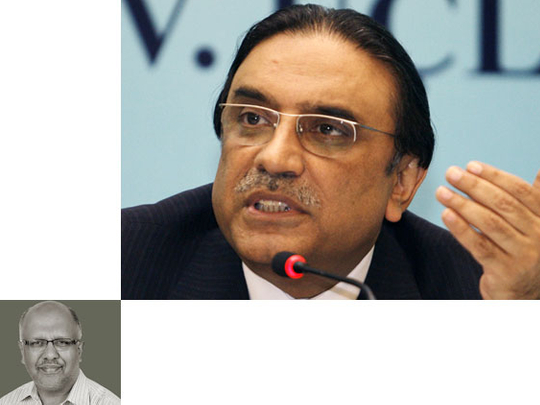
Pakistan's ruling alliance has brought forward the timeframe for holding the country's elections for the upper house of parliament — the senate — in the hope of stabilising what increasingly appears to be a creaky political structure.
On the face of it, the decision to hold elections to the senate in February — a month ahead of the expected date in March — will do little to change the country's troubling outlook.
Though elections to the senate take place through an indirect process wherein legislators in the lower house of parliament, known as the National Assembly, and provincial legislatures, take part in the process, it will mean little for ordinary citizens.
Meanwhile, direct elections to the National Assembly and the provincial legislatures are now also expected to take place ahead of schedule. Though not due until the first quarter of 2013, these elections are now likely to be held before the end of 2012.
This buildup in Pakistan sets the pace for a new round of political activity in a country that has been starved of representative politics in the past. Pakistanis have for too long lived with interruptions to a credible democratic process.
But clearly there is widespread disappointment with Pakistan's present group of elected leaders. In its fourth year in power since the last parliamentary elections of 2008, the current ruling structure has clearly been a disappointment. Brought to office just a few months after the tragic assassination of Benazir Bhutto, the late prime minister, her Pakistan Peoples Party (PPP) which seized the reins of power in 2008, has accumulated widespread disrepute, thanks to controversies linked to corruption and failure to set the pace for a long overdue process of reform.
For Pakistanis, the light at the end of the tunnel now comes with the promise of the next elections, presenting an opportunity to replace the current lot which rules the country. With the PPP's reputation in tatters, there are plenty of opportunities now for other parties to try their luck.
Notable among the available choices is indeed the Pakistan Tehreek-i-Insaaf (PTI) of Imran Khan, cricket star turned politician. Khan's political campaign which targets both President Asif Ali Zardari who is the de facto head of the PPP and opposition leader Nawaz Sharif, the former prime minister, has gathered momentum.
Going forward, the ruling structure at the federal level may indeed seek to reverse the prevailing trends ahead of the polls, by indulging in populist methods. But this may become a futile effort given the enormity of the challenges faced by Pakistan.
Democratic path
Last year, riots on issues ranging from electricity to gas shortages provided Pakistanis with an opportunity to vent their anger. This year there is little in terms of the widespread anger beginning to cool down anytime soon. On the contrary, the failure by the government to provide any convincing quick fixes will only add to popular resentment.
President Asif Ali Zardari and Prime Minister Yousuf Raza Gilani may indeed oversee a build-up to the next elections by relying on the promise of Pakistan continuing on the path of democracy under their watch. Yet such a promise will not be half-convincing and for two good reasons.
On the one hand, a number of controversies under the present ruling structure have smacked of anything but the continuation of the best traditions of democratic rule. For instance, the government's repeated refusal to adhere to the Supreme Court's directives and write to authorities in Switzerland to reopen cases of corruption that may potentially target Zardari himself, is an act that can hardly meet acceptable democratic norms.
On the other hand, hollow slogans in the name of democracy that are detached from serving the needs of the people, are just not enough to satisfy popular expectations.
For some, early elections may be a ploy by the ruling structure to restore its lost credibility. But more vitally, early or timely polls will only be an opportunity for Pakistanis to speak their minds over who rules the country.
Moreover, Pakistan's liberated media now has the opportunity to once again rise to the occasion and serve the expectations of the public across the board.
For the people, going through another set of elections, guided by a robust media, is the best promise there can be for Pakistan becoming a more consolidated democracy despite all its shortcomings.
Farhan Bokhari is a Pakistan-based commentator who writes on political and economic matters.












